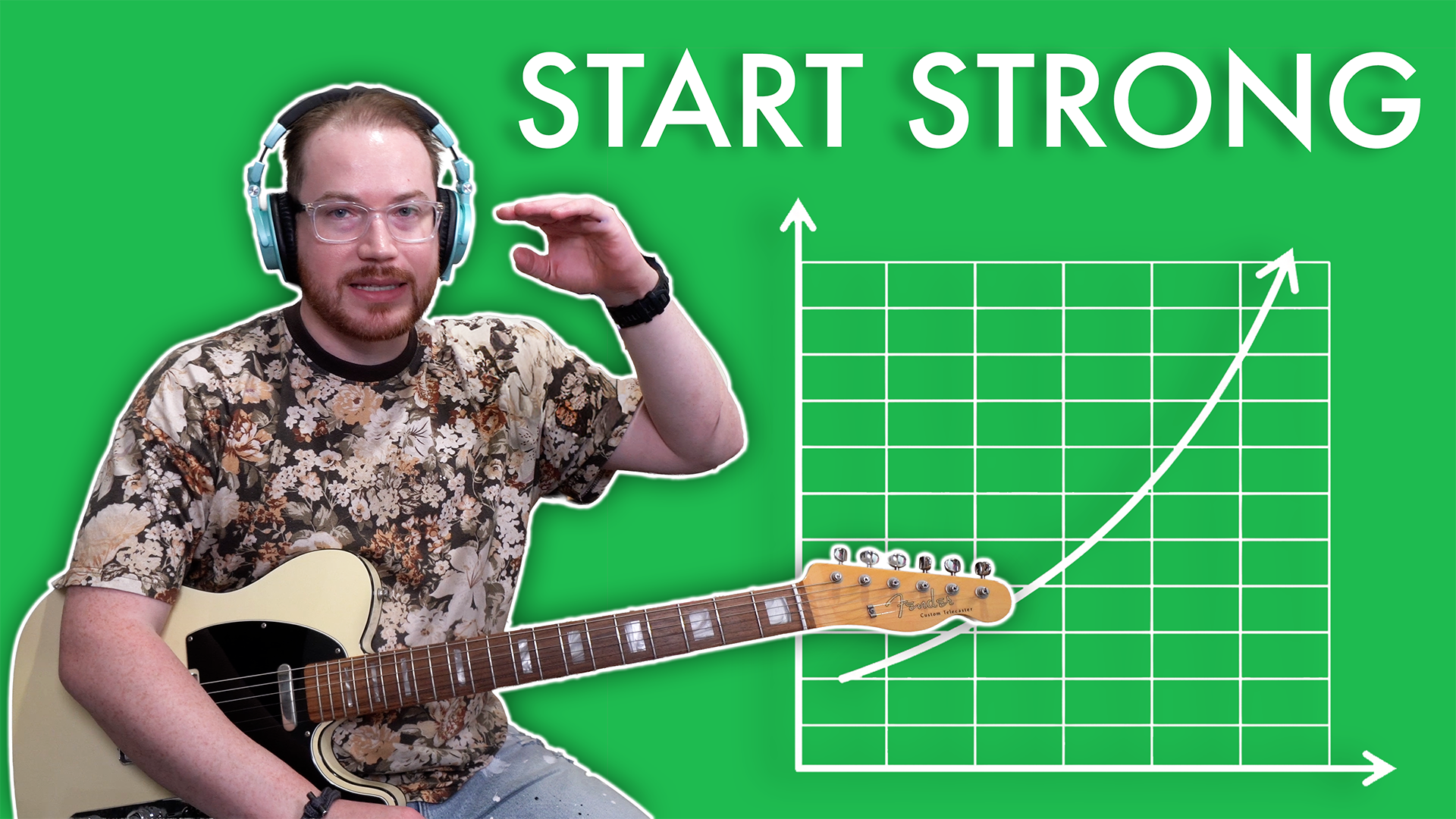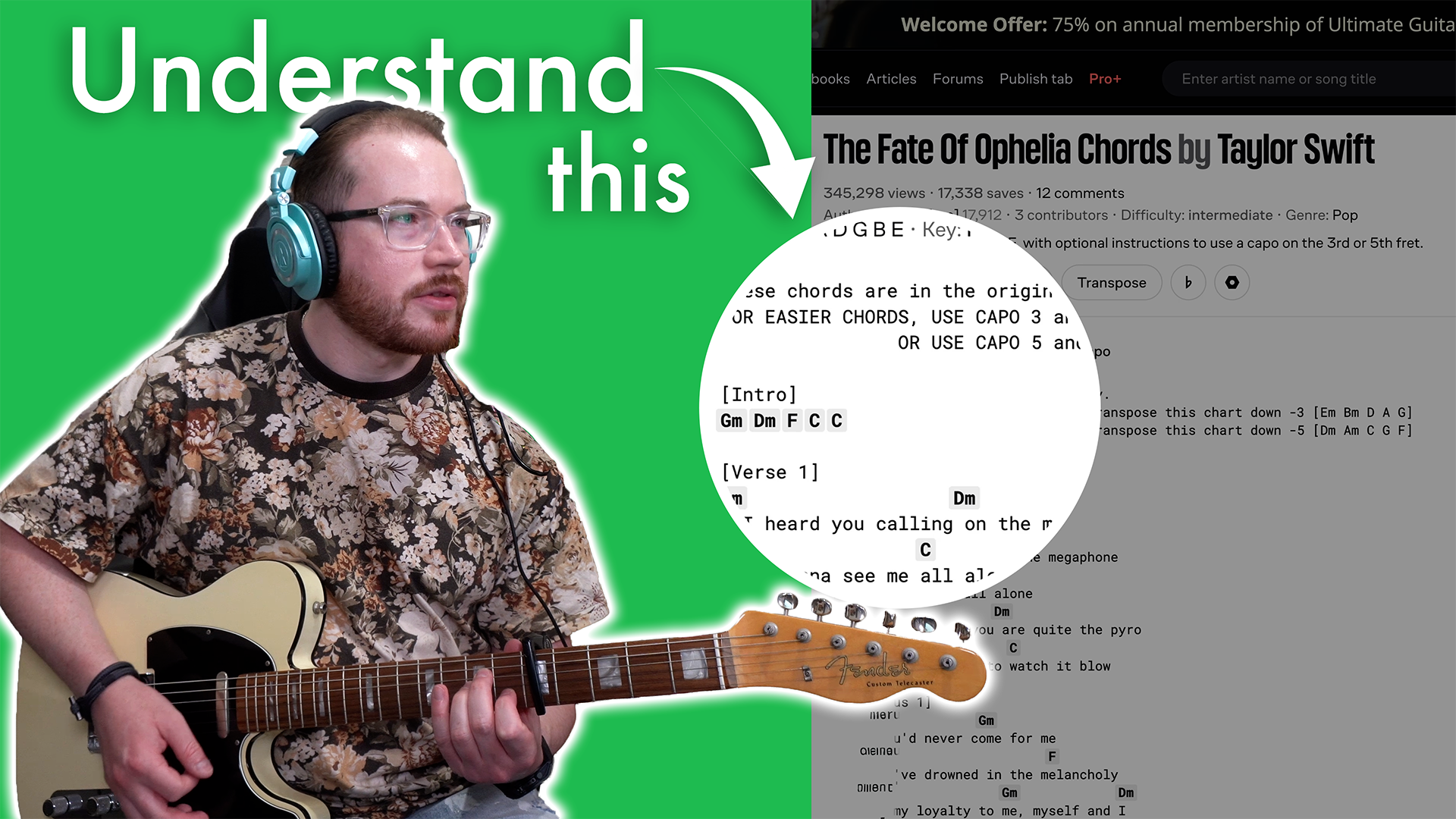Guitarists who are honest about this progress faster
I want to introduce you to a concept I like to call the practice continuum. This idea explores how a guitarist’s approach to their practice affects their progress. Whether you play for fun or want to get as good as possible as quickly as possible, understanding where you fall on the practice continuum will help you maximize both your enjoyment and your rate of progress on the guitar.
What is the Practice Continuum?
Imagine a line. On one end, you have ‘Fun’. This is where your practice focuses entirely on enjoyment and don’t worry about how it’s structured or the progress you’re making. On the other end, you have ‘Fast’. This is where you’re disciplined with the structure and intensity of your practice and everything is optimized for maximum efficiency and effectiveness.
Most of us fall somewhere in the middle, but here’s the catch: if we’re not honest about where we really are on this spectrum, frustration and burnout can creep in and hinder our progress as guitar players.
Fun vs. Fast
Practicing for FUN
When you’re down the ‘fun’ end of the continuum, your main goal is enjoyment. You play what feels good in the moment, avoid challenging techniques, and steer clear of anything that feels like hard work.
This approach is like going to the gym and picking random exercises each day without a plan. You will get stronger, but it will take a lot longer because there’s no intentionality behind your training. The same is true when you approach your guitar practice this way. You will improve, but your progress will be slower.
If you’re just playing guitar for relaxation or as a casual hobby, that’s perfectly fine! Progress takes a back seat to enjoyment.
Practicing for FAST
At the other end of the continuum, we have ‘fast’. This is the side where discipline and focus reign supreme. Here, you work on difficult techniques, push your limits, and practice even when it’s not enjoyable. This approach is highly effective for rapid improvement but can feel like work more than play. Without strong motivation and clear goals, it’s easy to burn out.
Where Should You Be?
There’s no right or wrong place on the continuum. What matters is being honest about your goals, the time you want to spend playing, and what motivates you to pick up the guitar.
Here are a few factors that might influence where you are on the practice continuum:
Goals: Are you preparing for a performance, recording session, or music exam? Or, is playing the guitar a way to unwind after work?
Life circumstances: A new parent with limited time might focus on playing the guitar for fun. A student with ample time who dreams of a music career might aim to progress as fast as possible.
Motivation: Do you enjoy structure and discipline around your practice? Or, do you prefer to play for fun?
I once had a student who had just become a parent. He often arrived at his lessons feeling bad that he hadn’t been able to practice or make as much progress as he’d hoped. I told him to forget about structured practice for a while, focus on being a great dad, and simply enjoy playing whenever he could. He was frustrated because he wasn’t giving himself permission to let his life circumstances move him toward the ‘fun’ end of the continuum for a while. He didn’t have to stay there forever, but being honest about where he was allowed him to enjoy playing the guitar more during this busy season.
I’ve also had students who loved the idea of improving as much as possible, as quickly as possible, but weren’t honest with themselves about their level of motivation. They burned out trying to practice as if they were at the fast-progress end of the continuum and began dreading picking up the guitar. Once they got honest with themselves and we adjusted their practice to include more fun, they started enjoying their time with the guitar much more.
The Key Takeaway
Wherever you are on the continuum, the most important thing is honesty. Don’t say you want to progress as fast as possible unless you’re ready to commit to the effort and sacrifice required. And don’t feel guilty if you prioritize fun. Guitar playing is about what works for you, not about meeting someone else’s standard.
Seasons of Guitar Practice
Remember, your position on the continuum doesn’t have to stay the same forever. Life changes, and so can your practice priorities. During a busy season, you might focus on fun. When you have more time, you might shift toward fast progress. This ebb and flow is natural and healthy.




